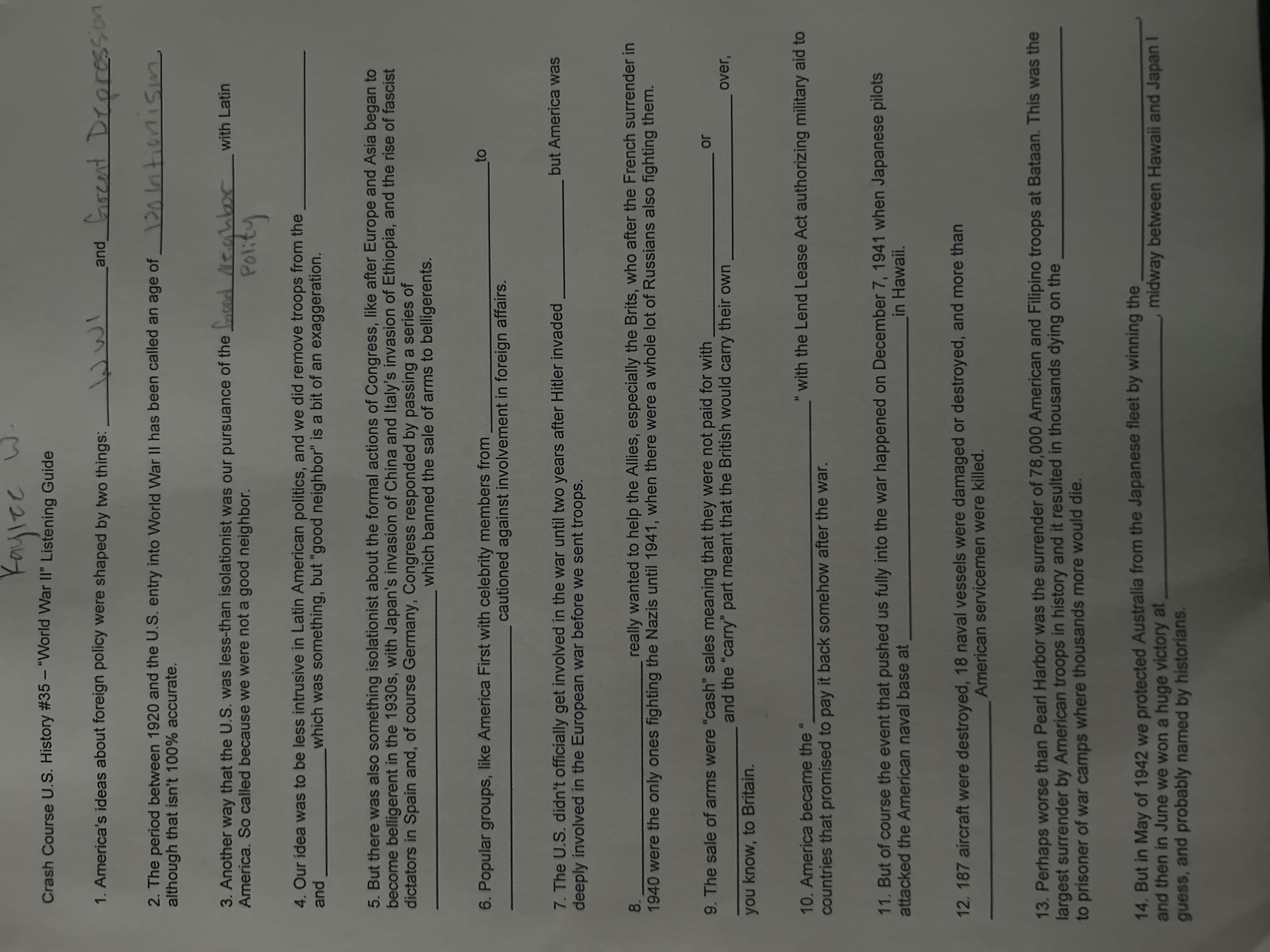What are the key themes and events in U.S. foreign policy leading up to and during World War II as suggested in the listening guide?

Understand the Problem
The question is focused on outlining key historical events and themes related to U.S. foreign policy before and during World War II. It involves filling in blanks in a listening guide about American attitudes, actions, and significant occurrences during that period.
Answer
Isolationism, 'Good Neighbor Policy', neutrality acts, Lend-Lease Act, Pearl Harbor.
Key themes in U.S. foreign policy leading up to and during World War II include isolationism, the 'Good Neighbor Policy' with Latin America, neutrality acts, military aid through the Lend-Lease Act, and the events following the attack on Pearl Harbor that spurred U.S. involvement in the war.
Answer for screen readers
Key themes in U.S. foreign policy leading up to and during World War II include isolationism, the 'Good Neighbor Policy' with Latin America, neutrality acts, military aid through the Lend-Lease Act, and the events following the attack on Pearl Harbor that spurred U.S. involvement in the war.
More Information
The U.S. initially pursued a policy of isolationism but gradually shifted to active involvement due to global conflict escalation, highlighted by measures like the Lend-Lease program which supported Allied forces before joining the war after Pearl Harbor.
Tips
Avoid confusing isolationism with complete non-involvement; the U.S. engaged in limited foreign policy actions, especially in the Western Hemisphere.
Sources
- 1937–1945: Diplomacy and the Road to Another War - history.state.gov
- Department of State Milestones 1937-1945 - history.state.gov
- History of the United States foreign policy - Wikipedia - en.wikipedia.org
AI-generated content may contain errors. Please verify critical information